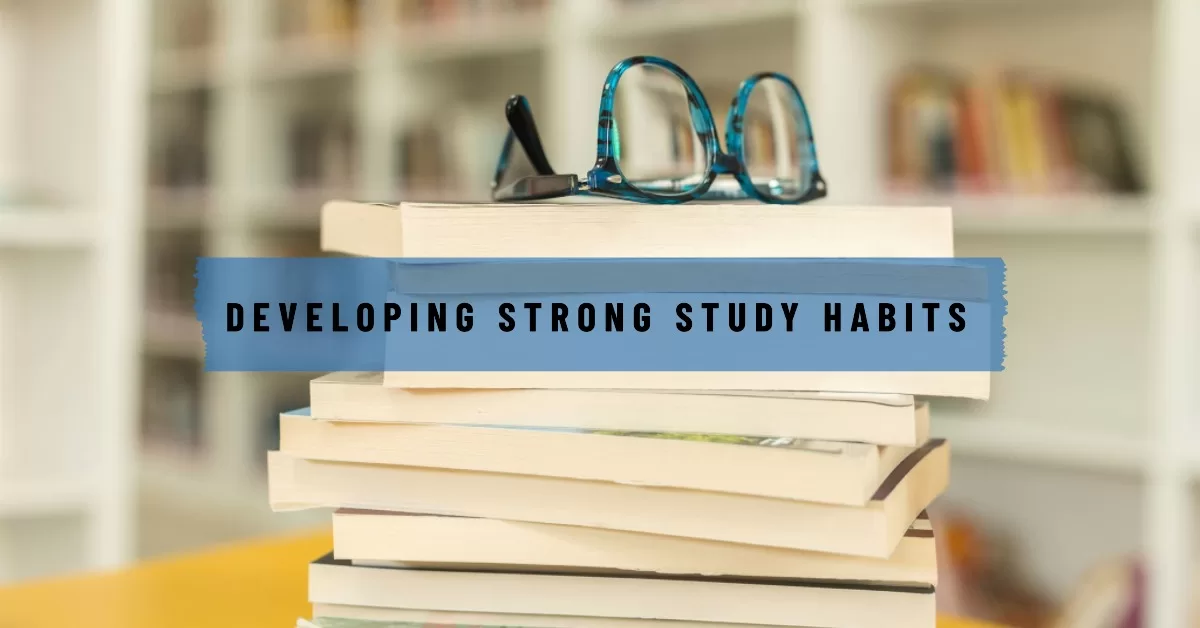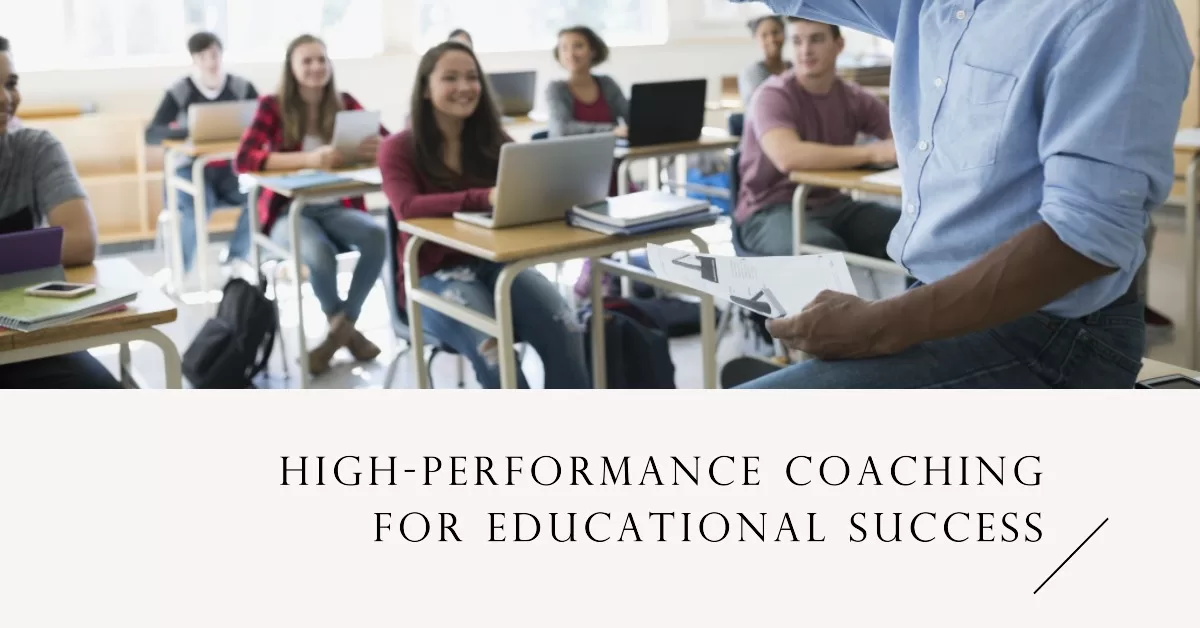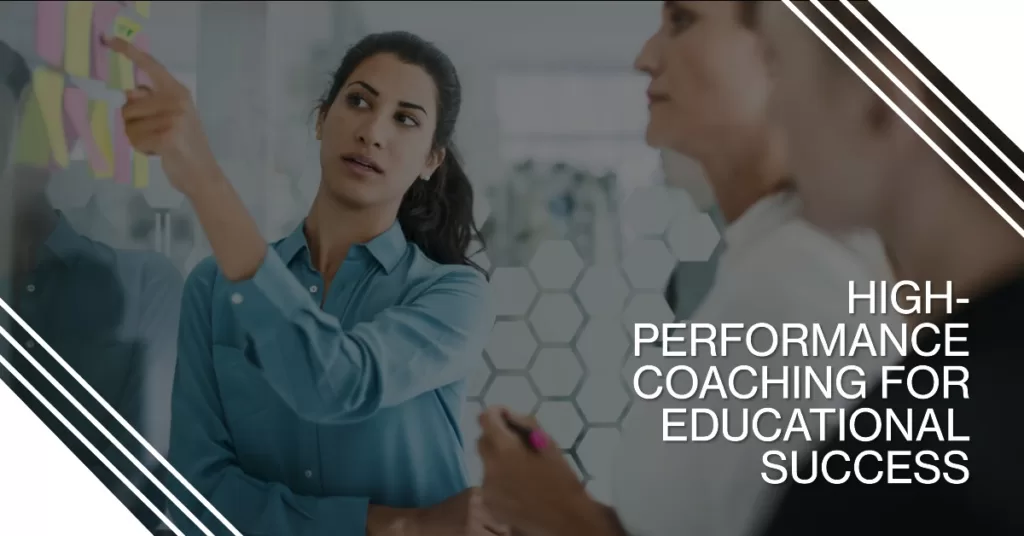High-performance coaching for educational success is a proactive approach to achieving academic excellence. It involves working closely with a coach who helps identify obstacles to success and develop personalized strategies for overcoming them. The process focuses on building knowledge, skills, and habits that enable students to perform at their best.
The ultimate goal of high-performance coaching is to help students reach their full potential by improving their academic performance, increasing self-awareness, boosting confidence, developing focus and concentration, and enhancing critical thinking skills. By breaking down complex concepts into manageable steps and providing support every step of the way, coaches empower students to take ownership of their learning journey and achieve long-term success. With the right mindset and guidance, anyone can become an accomplished learner capable of mastering even the most challenging subjects.
Table of Contents
Key Takeaways
- High-performance coaching involves a proactive approach to achieving academic excellence by identifying obstacles and developing personalized strategies.
- Developing a growth mindset, creating personalized action plans, and enhancing focus and concentration are essential for academic success.
- Accountability and support, goal-setting, and incorporating personalized support measures can significantly enhance student performance.
- Investing in one’s education through coaching and continuing education can lead to a multitude of opportunities and personal and professional growth.
What is High-Performance Coaching?
High-performance coaching is a systematic approach to maximizing individual potential and achieving educational success through the implementation of evidence-based strategies and techniques. It involves working with a coach who has expertise in providing guidance, support, and accountability to help students achieve their academic goals. High-performance coaching aims to develop skills such as time management, goal-setting, and effective study habits that are necessary for academic success.
The focus of high-performance coaching is on helping students identify their strengths and weaknesses so that they can create personalized learning plans that align with their unique needs. The coach works closely with the student to set achievable goals, monitor progress, provide feedback, and make adjustments when necessary. The coaching process empowers students to take ownership of their education by developing self-awareness, building confidence, and cultivating resilience.
One of the key benefits of high-performance coaching is its ability to promote academic achievement while also fostering personal growth. Through regular check-ins with a coach, students learn how to overcome obstacles such as procrastination or lack of motivation by focusing on solutions rather than problems. This approach helps them build resilience in the face of challenges which is an essential skill for success both inside and outside the classroom.
HPC provides a structured approach for students seeking academic success by leveraging evidence-based strategies tailored toward individual needs. By identifying areas requiring improvement through personalized learning plans created with coaches’ help, it fosters personal growth alongside educational achievement and improves self-awareness development among learners leading toward better performance outcomes.
Identifying Obstacles to Success
Identifying obstacles that hinder academic achievements is crucial for understanding the root causes of student underperformance. By identifying these obstacles, educators can create targeted interventions to support students and help them overcome these challenges. There are a multitude of factors that can contribute to academic difficulties, including socio-economic status, learning disabilities, mental health concerns, and family dynamics. When educators take the time to understand these obstacles, they can better support their students’ educational success.
One way to identify obstacles to success is through a comprehensive needs assessment. This involves gathering information about individual students’ strengths and weaknesses as well as environmental factors that may impact their performance. The table below outlines some potential areas for assessment:
| Area of Assessment | Potential Obstacles |
|---|---|
| Socioeconomic Status | Lack of access to resources like technology or tutoring services |
| Learning Disabilities | Difficulty with reading comprehension or written expression |
| Mental Health Concerns | Anxiety or depression impacting motivation or focus |
| Family Dynamics | Home responsibilities interfering with schoolwork |
Once areas for improvement have been identified through assessments such as this one, high-performance coaching can come into play. Coaches work with educators and families to develop personalized plans tailored to each student’s unique needs. These plans may include strategies for organization and time management, study skills development, counseling services referrals, and more. The goal is not only to improve academic performance but also to foster a growth mindset in students so they feel empowered to continue improving over time.
By identifying obstacles that impede academic achievement and developing targeted interventions through high-performance coaching, educators can help students succeed both academically and personally. With the right support in place, students can overcome barriers that may have previously felt insurmountable. It is essential for coaches and educators alike to approach each student holistically and recognize the complex interplay between various factors that impact their success in school.
Developing a Growth Mindset
Developing a growth mindset is an important aspect of academic achievement that involves embracing challenges and viewing failures as opportunities for learning. According to Carol Dweck, individuals with a growth mindset believe that their abilities can be developed through hard work and dedication. They see mistakes as part of the learning process and are more likely to persist in the face of obstacles. In contrast, individuals with a fixed mindset believe that their abilities are predetermined and cannot be changed.
One approach to developing a growth mindset is through the use of deliberate practice. Deliberate practice involves setting specific goals, receiving feedback on performance, and making adjustments based on that feedback. It requires focused attention, sustained effort, and a willingness to engage in difficult tasks. By engaging in deliberate practice, students can develop new skills and improve their performance over time.
Another strategy for promoting a growth mindset is through the use of positive self-talk. Encouraging students to adopt phrases such as “I can do this” or “I am capable of learning this” can help them overcome self-doubt and build confidence in their abilities. Additionally, teachers can provide praise that focuses on effort rather than innate ability. This type of praise reinforces the idea that success comes from hard work rather than natural talent.
Developing a growth mindset is essential for academic success. Students who embrace challenges and view failure as an opportunity for learning are more likely to persist in the face of obstacles and achieve their goals over time. By using deliberate practice strategies and incorporating positive self-talk into daily routines, educators can promote a culture of growth within their classrooms that encourages students to reach their full potential.
Creating Personalized Action Plans
Creating personalized action plans can be a useful strategy for students to set goals and track their progress toward academic achievement. These plans provide a clear path to success by breaking down larger goals into smaller, manageable steps. By focusing on specific actions that need to be taken, students can avoid feeling overwhelmed or lost when faced with challenging tasks.
To create an effective action plan, it is important for students to identify their ultimate goal and then break it down into smaller objectives. These objectives should be specific, measurable, achievable, relevant, and time-bound (SMART). For example, if the goal is to improve grades in math class, the objectives could include completing all homework assignments on time or attending after-school tutoring sessions twice per week.
The following table provides an example of how a student’s SMART objectives might look for improving math grades:
| Objective | Specifics |
|---|---|
| Complete all homework assignments on time | Submit each assignment before the due date |
| Attend after-school tutoring sessions twice per week | Attend two tutoring sessions each week until the end of the semester |
| Participate actively in class discussions | Raise hand at least once during every class period |
By creating these specific objectives and tracking progress toward them regularly (such as weekly or biweekly), students are more likely to achieve their desired outcome.
In addition to helping students achieve academic success, personalized action plans can also foster feelings of control and ownership over one’s own learning experience. When students take responsibility for setting their own goals and monitoring their progress toward those goals, they are more likely to feel invested in their academic journey. This sense of ownership can lead to increased motivation and engagement in school overall.
Overall, creating personalized action plans is an effective strategy for achieving educational success. By breaking down larger goals into smaller SMART objectives and tracking progress regularly, students can stay focused and motivated toward achieving academic excellence while also fostering a sense of control over their learning experience.
Building Strong Study Habits

Developing strong study habits is essential for students who aim to excel academically. This subtopic will cover three key points that can help students improve their academic performance: effective note-taking strategies, enhancing memory and retention, and improving test-taking skills. By mastering these skills, students can become more efficient learners and develop the tools they need to achieve their educational goals.
Effective Note-Taking Strategies
Implementing effective note-taking strategies is a crucial skill for students to maximize their learning and academic success. Note-taking allows students to actively engage with the material by summarizing, organizing, and analyzing key concepts. It also serves as a valuable resource for reviewing and recalling information later on. However, note-taking can be overwhelming if not done effectively. Students must learn how to select important information, organize it in a meaningful way, and develop their own system that works best for them.
One effective strategy is the Cornell method, which involves dividing notes into sections of cues, notes, and summaries. The cue section includes keywords or questions that prompt recall of the content; the notes section contains detailed explanations of concepts; and the summary section provides an overview of the main points covered in class. This method encourages active listening during lectures or reading material by prompting students to think critically about what they are hearing or reading. Other methods include mind mapping and outlining, both of which allow for the visual organization of information in a hierarchical structure. By implementing these strategies consistently, students can improve their retention and comprehension of information while reducing stress associated with studying.
Enhancing Memory and Retention
Improving memory and retention is a crucial aspect of academic learning, as it allows students to recall information more easily and apply it effectively in various contexts. To enhance memory and retention, students can use various techniques that include repetition, visualization, association, elaboration, and chunking. These techniques can help students remember information for longer periods of time by creating strong connections between the new information and their existing knowledge.
Repetition involves reviewing information multiple times to strengthen the neural pathways associated with that information. Visualization involves creating mental images related to the material being studied, while association involves linking new information with something familiar or meaningful. Elaboration involves expanding upon the basic ideas presented in class by asking questions or making connections to other topics. Finally, chunking involves breaking down large amounts of information into smaller chunks that are easier to remember. By using these techniques consistently over time, students can improve their memory and retention skills, leading to better academic performance overall.
Improving Test-Taking Skills
One important aspect of academic success is the ability to effectively demonstrate knowledge through test-taking, which requires a combination of content knowledge and strategic skills. Improving test-taking skills can help students perform better on exams and achieve their academic goals.
To improve test-taking skills, students can start by familiarizing themselves with the format of the exam they will be taking. Understanding the instructions, time limits, and point values for each question can help them manage their time more effectively during the exam. Another useful strategy is to develop effective note-taking techniques that allow them to quickly identify key information from lectures or readings that may be tested on the exam. Finally, practicing self-care strategies like getting enough sleep and eating healthy foods can help reduce stress levels and improve overall cognitive function, making it easier to remember information during an exam. By developing these types of strategic skills alongside their content knowledge, students can become more confident and successful test-takers.
Enhancing Focus and Concentration
Enhancing focus and concentration is crucial for academic success, as it allows students to better absorb and retain information. In order to improve focus and concentration, there are several strategies that can be implemented:
- Create a Dedicated Study Space: Having a designated area for studying can help eliminate distractions and increase concentration. This space should be free from noise, clutter, and other distractions.
- Use Time Management Techniques: Planning out study sessions in advance can help students stay focused during their designated study time. Breaking up study sessions into smaller chunks with breaks in between can also help improve concentration.
- Practice Mindfulness Exercises: Practicing mindfulness exercises such as deep breathing or meditation can help calm the mind and improve focus. These exercises can be done before or during study sessions.
- Get Enough Sleep: Adequate sleep is essential for maintaining focus and concentration. Students should aim to get 7-9 hours of sleep per night to ensure they are well-rested for their studies.
By implementing these strategies, students can enhance their focus and concentration which will ultimately lead to improved academic performance. It’s important for students to remember that improving these skills takes practice and consistency, but the benefits are well worth the effort. With dedication and hard work, anyone can become a more focused and successful learner.
Accountability and Support
Accountability and support are crucial factors that can aid in the academic progress of students. Students who feel supported by their teachers, peers, or parents tend to be more motivated and engaged in their studies. Additionally, when students have someone holding them accountable for their actions, they are more likely to take responsibility for their academic success.
One way that accountability and support can be implemented is through setting goals. Goal-setting provides a clear direction for students to work toward and helps them stay focused on achieving specific outcomes. To ensure success with goal-setting, it is important to create SMART goals that align with the student’s interests and abilities.
Another effective method for providing accountability and support is through mentorship programs or peer tutoring. Peer tutoring allows students to learn from one another while fostering a sense of community within the classroom. On the other hand, mentorship programs provide a more structured approach where an experienced individual guides a less-experienced one through various challenges.
To measure the effectiveness of accountability and support efforts in education systems, it is important to use metrics such as academic performance metrics like standardized test scores or grade point averages (GPAs). These measurements help educators identify areas where additional support may be needed while highlighting successful strategies.
Investing in Your Educational Success
Investing in one’s education can lead to a multitude of opportunities and personal growth. By taking the initiative to invest in one’s education, individuals are setting themselves up for success and creating a path toward achieving their goals. As the world becomes increasingly competitive, it is essential for individuals to continuously improve their skills and knowledge in order to remain relevant in their respective fields.
An example way to invest in educational success is by seeking out high-performance coaching. High-performance coaching offers individuals personalized support and guidance tailored toward achieving specific goals. Coaches provide accountability, motivation, and strategies that help individuals overcome obstacles and reach their full potential. High-performance coaching can be especially beneficial for students who may struggle with time management, organization, or academic performance.
In addition to high-performance coaching, investing in educational success can also involve pursuing additional training or certifications in one’s field of interest. Continuing education not only improves one’s skills but also demonstrates commitment and dedication to professional growth. Many employers value employees who take the initiative to learn new skills and stay updated on industry trends.
Overall, investing in educational success is a worthwhile endeavor that can open doors to countless opportunities and personal growth. Whether through high-performance coaching or continuing education, individuals should prioritize their education as an essential component of long-term career success.
Conclusion

High-performance coaching is a valuable tool for students who want to achieve academic success. By identifying obstacles that may be holding them back and developing a growth mindset, students can create personalized action plans designed to help them reach their goals. Building strong study habits and enhancing focus and concentration are also key factors in achieving educational success.
Accountability and support from a coach can make all the difference, helping students stay on track and motivated as they work toward their goals. Investing in high-performance coaching is an investment in your future success, providing you with valuable tools and techniques that will serve you well throughout your academic career.
By learning to overcome obstacles, cultivating a growth mindset, and developing strong study habits, you’ll be better equipped to face the challenges of higher education with confidence. With the help of a skilled coach, there’s no limit to what you can achieve!




